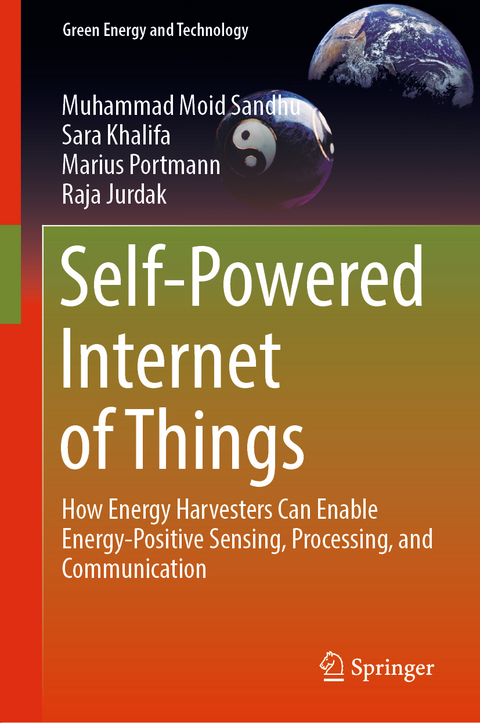
Self-Powered Internet of Things
Springer International Publishing (Verlag)
978-3-031-27684-2 (ISBN)
This book covers a broad range of topics related to self-powered activity recognition. The main topics of this book include wearables, IoT, energy harvesting, energy harvesters as sensors, activity recognition and self-powered operation of IoT devices. This book starts with the introduction of wearable IoT devices and activity recognition and then highlights the conventional activity recognition mechanisms. After that, it describes the use of energy harvesters to power the IoT devices. Later, it explores the use of various energy harvesters as activity sensors. It also proposes the use of energy harvesters as simultaneous source of energy and context information and defines the emerging concept of energy-positive sensing compared to conventional energy-negative sensing. Finally, it explores sensor/signal fusion to enhance the performance using multiple energy harvesters and charts a way forward for future research in this area.
This book covers all important and emerging topics that have significance in the design and implementation of autonomous wearable IoT devices. We believe that this book will lay the foundation for designing self-powered IoT devices which can ultimately replace the conventional wearable IoT devices which need regular recharging and replacement.
Raja Jurdak is a Professor of Distributed Systems and Chair in Applied Data Sciences at Queensland University of Technology, and Director of the Trusted Networks Lab. He received the the PhD degree in information and computer science, University of California, Irvine. Professor Jurdak established and led the Distributed Sensing Systems Group at CSIRO's Data61, to become one of the world’s leading large scale sensing research groups, from 2011 to 2019. He also spent time as visiting academic at MIT and Oxford University in 2011 and 2017. His research interests include trust, mobility and energy-efficiency in networks. Prof. Jurdak has published over 230 peer-reviewed publications, including 3 authored books in the areas of Internet of Things, Cyberphysical Systems, and Blockchain. His publications have attracted over 12,000 citations, with an h-index of 48. He was an Embark Fellow in 2006, and Endeavour Fellow in 2011, and has won the CSIRO Medal for Environmental Achievement in 2011. He serves on the editorial board of Ad Hoc Networks, Nature Scientific Reports, and on the organising and technical program committees of top international conferences, including Percom, ICBC, IPSN, WoWMoM, and ICDCS. He was TPC co-chair of IEEE ICBC in 2021. He is a conjoint professor with the University of New South Wales, a Senior Member of the IEEE and a Distinguished Visitor of the IEEE Computer Society.
Introduction.- Background.- Energy harvesting to power the IoT devices.- Energy harvesters as activity sensors.- Energy harvesters as a simultaneous source of energy and activity information.- Energy-Positive Activity Recognition.- Fusion of multiple energy harvesters.- Conclusion and Future Work.
| Erscheinungsdatum | 18.06.2023 |
|---|---|
| Reihe/Serie | Green Energy and Technology |
| Zusatzinfo | XX, 165 p. 70 illus., 69 illus. in color. |
| Verlagsort | Cham |
| Sprache | englisch |
| Maße | 155 x 235 mm |
| Gewicht | 418 g |
| Themenwelt | Mathematik / Informatik ► Informatik |
| Technik ► Elektrotechnik / Energietechnik | |
| Schlagworte | activity recognition • Energy-Positive • IOT • self-powered • Wearables |
| ISBN-10 | 3-031-27684-1 / 3031276841 |
| ISBN-13 | 978-3-031-27684-2 / 9783031276842 |
| Zustand | Neuware |
| Haben Sie eine Frage zum Produkt? |
aus dem Bereich


